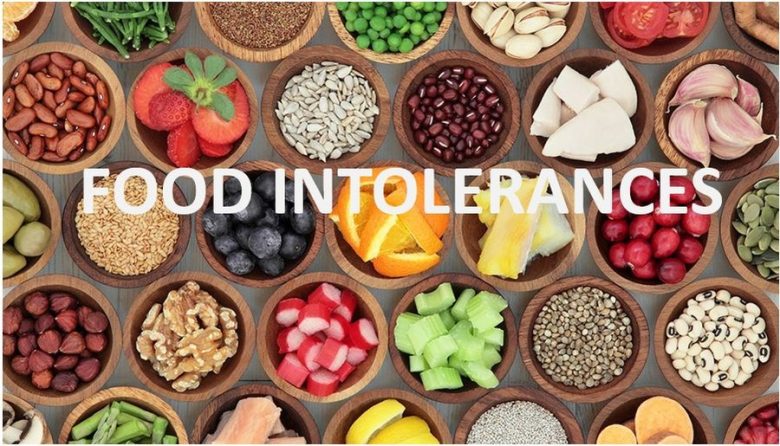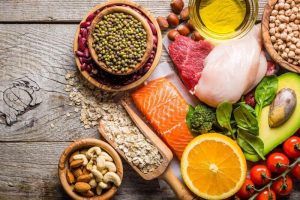Food is a wonderful yet paranoid factor in people’s lives – that’s how it feels when one suffers food allergies. In contrast, gustatory addictions bring about little need for caution on the part of many individuals, however those who possess some form of gustatory addiction must always be on guard. This is understandable as the discomfort caused by some types of food, or after ingestion of certain foods, varies anywhere from slight to severe pain. Many people recognize what brings on these feelings and alter their lives accordingly.
In bringing this to a close, we will highlight likely food intolerances and argue consequently why these should be to a large extent avoided. No matter if you are affected chiefly by dairy products or wheat gluten or fructose, adjusting one’s diet will assist in converting completely regrettable forms of eating into pleasurable ones. To be satisfied with the meal is the name of the game. So let’s get into it in order to help you understand how best to proceed for the better health of your choices in the future.
Understanding Food Intolerances:
Eating food intolerances happen when the body is unable to assimilate specific dietary components. Intolerance does not involve the immune system as food allergies do, but rather creates discomfort within the digestive system instead. This can mean exaggerated feelings of fullness, excessive flatulence, and aches. The cause of these problems is, in fact, the lack of particular enzymes necessary for the breakdown of such nutrients. Lactose intolerance is one such example where a person has a shortage of the specific enzyme, lactase.
People may confuse sensitiveness with allergy, as there is discomfort experienced in both cases. However, this understanding is pivotal in ensuring efficient treatment. People, especially those suffering from food intolerances, face the challenge of identifying their triggers. A food diary may help determine these food items after some time. Having this kind of orientation ensures that one is able to address his or her meals without feeling bad or without tension.
Common Food Intolerances and their Symptoms:
These food intolerances have many triggers and not every person who has the same trigger will experience the same results. They mostly occur owing to dietary substances which the body is unable to properly utilize.
Lactose intolerance is easily one of the top issues with people. The person experiences tummy bloating and gas formation and runs to the bathroom for diarrhea after ingestion of dairy products.
Likewise, gluten allergies are multifaceted too. Some may feel pain in the stomach regions or debilitating pain after consuming any products containing wheat.
While fructose is a sugar that mostly comes from fruits and sweeteners, and this intolerance causes similar discomforts as the first intolerance, the latter occurs solely with fruits with fructose sugar. After looking at the following picture, it afterwards can bring about vomiting, intolerable stomach pulsations or even cramps.
Among the other suggestive items that usually bring disadvantages are some unnatural chemicals and foods with a lot of FODMAP, which can cause headaches or rashes in certain individuals
Identification of these dietary intolerances is important so that you can improve your wellness whilst satisfying your appetite without suffering in any way.
What Foods To Avoid For Lactose Intolerance:
Coping with granular intolerance is not an easy task, let’s say due to foods in this case. It goes without saying that the most common disorders that are met are those affected by the dairy products since the enzyme necessary for such digestion, lactase, is lacking in them. Milk is probably the worst offender of all. Even tiny quantities of this may cause such discomfort. It’s not only chunks of milk that are included, but also skim, low-fat ones that bring about similar problems.
Also, this type of product can go through trials, but in this case, soft types of cream cheese and soft ricotta are able to pass lactose intolerance successfully. Although there are hard cheeses that are made with little amounts of lactose, it does not mean that they can be eaten just because they do not contain a lot of lactose. Ice cream is also another good and tasty treat that should be avoided. I’m sure you know the reason why—it is full of lactose. Yogurt may sound fine because it has probiotics, but a lot of lactobacillus and other nourishing bacteria did not help many industries escape from abusing lactose contained in plenty of such products.
Read the labels very carefully! Examinations reveal that a lot of packed food consists of some hidden dairy products that could be in one way or another a shock. For lactose intolerates, a lot of appliances at meals get very easy.
Foods To Be Avoided For Gluten Sensitivity:
For persons who are gluten sensitive, it is very important to take note of the food you take. Gluten is a type of protein that is mainly found in wheat and some other grains, especially barley and rye. Otherwise known as the digestive sac, it can damage this part of your body. It is quite obvious wires and pastes are the enemy. The classic ones have too much gluten content that can turn out to be uncomfortable. Other cereals might also end up as frantically surprising, factory-made from wheat or barley.
I’m sure you have not forgotten about fast foods! Pretzels, biscuits, and some dips might not be as innocent and not pain-free with regards to gluten ingredients. Always check some words like “hydrolyzed wheat protein” or “barley malt”. Even beer can sometimes be a factor because it’s often made from barley. Use gluten-free options instead.
Even condiments such as soy sauce often have wheat contents. There are lots of other substitutes, ranging from healthcare ones to culinary ones, that help maintain flavor, which is the only disadvantage. For food options, exploring is required, which is wholly possible with some thorough strategy.
Foods To Be Avoided For Fructose Intolerance:
Dining out or shopping for foods can prove to be a daunting task for someone suffering from fructose intolerance. For those who are affected doing these would be impossible and can be avoided if those foods are consumed. Apples, pears, and cherries have lots of fructose in them even though they are healthy in many ways. Some fruits could be very sweet and pleasant to some people but they can also cause panic in some other individuals.
Some other categories of food equally have to be handled with care. Onions and asparagus may aggravate because of the fructan they may contain. Most modern-day foods are not only spicy but contain numerous types of sugars, even high fructose corn syrup which ought to be limited. It is better to avoid any prescription at all than to bring it to the pharmacy.
Sweeteners mostly available in most homes like honey, agave, and others should also be taken with caution. Instead, foods can be sweetened with sugar in forms of maple syrup or even stevia in order to avoid the risks associated with them. Watching what you eat can relax social engagements since flare-ups of symptoms will be avoided.
Practical Strategies to Relieve Food Intolerance:
It’s crucial to understand that dealing with food intolerances can be exceptionally difficult; however, a number of easy approaches have been outlined to ease the process. First, begin with a food diary. The author’s food diary helps to recall meals and symptoms related to what was consumed. This will help in the improvement of the effectiveness of trigger foods identification.
Try to venture into the zone of cooking at home. By making your own dishes, you are also able to monitor the ingredients and prevent extra additives, which are common in instant food.
Consider using some alternatives in your food. When making alternatives for lactose intolerance, use lactose-free almond or oat milk instead of dairy food products. For those who are intolerant to gluten, quinoa or rice can substitute other grains.
Tell your friends and your family as well about the characteristics of your eating habits. Their help may greatly facilitate social engagement and make it more bearable.
Ask your doctor or a nutrition expert for help that is meant to suit your needs and your way of living. You might see perspectives that are more dimensional than that which is offered to you if there are any problems.
Conclusion:
People with food intolerances or allergies may experience difficulties; however, it is necessary for health maintenance. By learning what foods to eliminate, you are empowering yourself to make effective choices. Seek more spices and different textures to extend the reign of your palate. You will be surprised at the number and variety of tastes that have been hidden from you.
Listening to your body is directly linked to the understanding and appreciation of its capabilities. It will help in figuring out which activities are suitable for your body and which ones are less so. Being able to relate to other people who have faced their own mess will give some motivation and assistance when it is needed. Let’s face it, food should serve its purpose—to give us energy and not pain. Be kind to yourself and learn how to make the right choices concerning what goes in your mouth.
FAQs:
1. How do a food intolerance and a food allergy differ from each other?
Digestive issues are often the common symptoms associated with a food intolerance, whereas food allergies can elicit an immune response, which can be fatal in some instances.
2. Will I be able to enjoy foods I love even if I have an intolerance?
Definitely! There are plenty of dishes, such as some chicken curry dishes, that are lactose-free that even those who are intolerant of lactose enjoy.
3. How are food intolerances diagnosed? Are there any tests for food intolerance?
There are various tests for food intolerance up to and including elimination diets and breath tests, and making a consultation with your health caregiver can lead you into the correct place.
4. Are lactose-free dairy products safe for people who cannot tolerate lactose?
Lactose-intolerants tend to manage a lactose-free diet quite well since there is hardly any use of lactose in lactose-free products. However, the reactions vary from one person to another.
5. Do symptoms get better with time after one has avoided trigger foods?
Yes, many report improvement in their symptoms. Most dietary paradox patients also do not present any problems when they avoid problem foods. A few months later, some might even find that their tolerance levels have improved.




